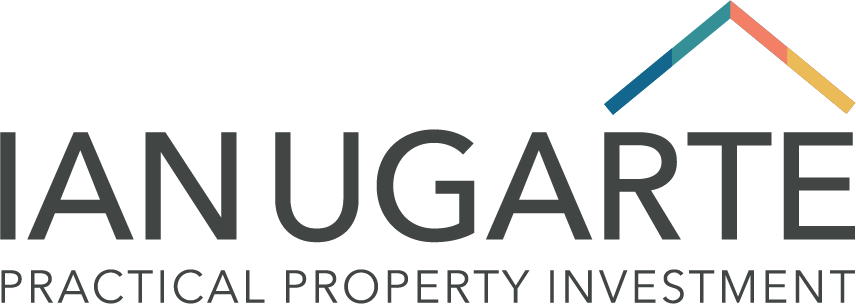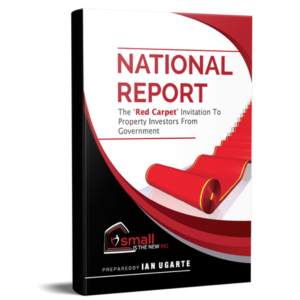Most of us didn’t see a pandemic coming, and we didn’t see property prices going through the roof as a result. With the current housing market unpredictability, and talk of easing lending laws and further subsidies for buyers, how do you approach getting a property loan? Has that changed too?
It’s something I discussed with Adrian Franklin in my Ticker HOME episode 15, and the first thing I’ll say is, it’s never as simple as: a) asking for money; and b) automatically getting it. Never has been, never will be. Banks will always look at your circumstances, your habits, your income and expenses. Whether it’s for a property investment, or a home to live in.
So here are the three unavoidable pre-requisites for securing a property loan. I call them the three Cs, and you need to tick all of them for the bank to see you as a good risk. If one’s missing, it’s like choosing the bar stool with one wonky leg: you end up on the floor.

1. Character
As far as the bank’s concerned, your character as a lender is determined by your credit history. Yes, your past deeds shape their judgement of you.
Every time you’ve applied for credit, whether you were successful or not, that process has been documented by credit bureaus, including how much you borrowed. So when you go in for a property loan, whether you’re a first home buyer, or you’re adding to your property portfolio, the financial institution will do a check with the bureaus to ascertain your credit score or rating, which is supplied to them in the form of a credit report.
If you’ve had multiple failed applications or missed repayments of loans or cards or even utility bills – that will drive your score down and be reflected in your report.
Banks want to see you paying things on time. A good credit score shows you’re a low-risk customer, and they’ll judge you more favourably than someone who’s defaulted. It might also mean they’ll offer to lend you more money.
MoneySmart has simple explanations of how it all works, including contact details of reporting agencies who’ll give you a free credit report:

2. Capacity
This is about giving banks confidence in your ability to service your loan agreement, convincing them you can afford that loan. And you have to kick this into gear at least three months in advance of applying for the loan, because that’s how far back the banks will probably look (at least).
In the lead up to your application, you want to be visibly earning as much income as possible. Drive an Uber if you have to; get a side-hustle to boost that income.
This part can be tricky, if you’re like many Australians who hate paying tax, and claim as many tax deductions as possible to write your income down every year. Then when you go to apply for your property loan and the bank checks your tax return, it looks like you don’t earn enough money.
It’s a trade-off, and something you should discuss with your accountant or financial adviser sooner rather than later. (And earning cash under the table, without paying tax, obviously doesn’t help here either.)
Note that banks will scan your bank statements, past loan statements and rates notices. So it’s up to you to demonstrate that regular income, show you’re regularly putting some of it away and not touching those savings. Try and get rid of your credit cards and learn to rely on a debit card, bearing in mind that a credit card limit of $5,000 looks like $15,000 – $20,000 to a bank because of the high interest rates charged.
And at the same time, trim your expenses where you can. Look at reducing those hair and beauty, takeaway food, holiday spends. It’s all about what’s coming in versus what’s going out.
SCROLL DOWN to find out how to use your existing home’s equity as part of your loan ‘collateral’.

Red flags for banks
Just a side-bar here. If you want a bank to approve your loan application, don’t spend in these areas, especially in the three months prior to your application:
- Gambling sites, TAB – even a spend at the casino restaurant is bad optics
- Car leases – has an impact on your credit score, especially at the start of the lease, or if you default
- Afterpay/Buy now pay later – sends a message that you can’t afford to pay up front
- Accessing your super in COVID
You want the bank to look at your statements and believe you’re a good saver, and spender. Someone who’s equipped to pay off a large loan over decades. Not a spendthrift.
If you haven’t had the best education in managing your finances, it’s never too late. Do your research, read some blogs, browse MoneySmart and other government sites. Budgeting, saving and investing, once mastered, will be what wins the bank over to your side.

3. Collateral
In most cases, collateral means your deposit. What savings do you have to put towards the property?
Or how much equity do you have in your property portfolio generally, say in your principal place of residence, that you can extract through refinancing?
Could you sell a car to help create that stash?
Traditionally banks ask for a 20% deposit, which gives you an 80% loan. That’s how you calculate your loan-to-value ratio (LVR) – the value of your property in comparison to the amount of money being borrowed through your home loan, (in this example 80%).
The goalposts are shifting a bit at the moment and some banks will lend more, from 90 to 95%, even 98% in some cases with government stimulus; but then you need to pay mortgage insurance on top of that. Which is basically the bank saying, “We want an insurance company to back you, in case you default, so that we don’t lose out.”
A higher LVR does give you more opportunity – to borrow more and potentially increase your opportunity to gain more in the long term. But if you’re not great with savings, I wouldn’t recommend it, especially if interest rates go upwards.
Need mortgage help? Listen to my Small Talk Big Ideas Podcast with residential lending expert, Paul Steele.

Help getting your three Cs in order
If you need help ticking these three boxes, don’t go straight to your bank. Any of the big four banks in particular will be more interested in selling their product and getting your business, than catering to your individual needs, stage of life and investment strategy.
Go to a broker instead – a good one recommended by someone you trust. Brokers are working on your behalf. They’ll consider a range of options and tell you how much you can afford on your current income, and how much you need to save.
Then you can set your targets and your timeline, and they can give advice like: “That’s a good deal for you. Not because of the interest rate, but because I know that you want to do a subdivision, so that’s the right thing for your property portfolio at the moment.”
As with all your Professionals, check their credentials and registrations. Search Credit Registered Person, Credit Representative and Credit licensee on ASIC Connect’s Professional Registers.
For more information on lending trends and the changes coming in the market, register for my upcoming Free 1-Day Masterclass, Property Profits with Purpose.
And good luck with your application!






